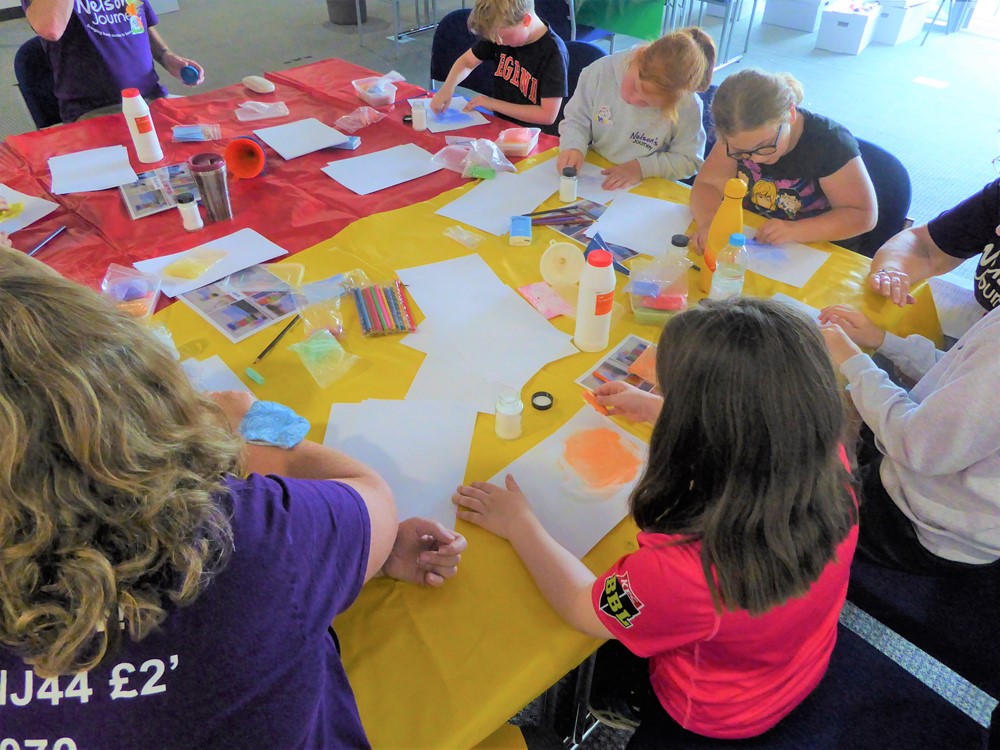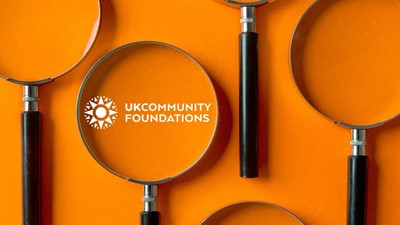For this year's Grief Awareness Week, we have been looking at the ways in which the world has changed for people suffering bereavements and the charities that support them due to COVID-19.
Grieving during a pandemic
There is no good time for a person’s world to turn upside down. While navigating oneself along the road of grief is hazardous at the best of times, doing so during a pandemic has tested people and the charities that support them to their very core.
After several years with a below-average death toll, 2020 saw a soaring total of 695,000 deaths in the UK – over 80,000 more than in 2019. With over 144,000 people having now died from COVID since the pandemic began, the pressure on support services has been immense.
In a practical sense, COVID restrictions over the past 18 months have meant that families and friends have been kept apart as they cope with the loss of a loved one. Sadly, more than 318,000 people over the age of 65 have lost their partners during the pandemic – a 14% increase from before it began – many of whom were left living alone, grieving in isolation.
Access to hospitals, hospices, counsellors, care homes, funerals, and support groups for children and adults were all restricted. Furthermore, while the consequences of the pandemic affected people’s mental health, the physical elements of grief impacted people’s physical health and finances.
Challenges, choices and charity resilience
The immediate challenges the pandemic were acutely felt by charities and community groups. Staff and volunteers were forced to move to remote working with limited digital provisions in place and normal fundraising activity halted.
In addition to the new COVID-related complications of the workplace, existing inequalities in digital access meant that charities found it difficult to connect digitally excluded people to nearby support services, including older people or low-income households.
Cruse Bereavement Care Scotland focuses much of its support on people who are living in poverty and/or are in poor health due to bereavement. Core funding from Foundation Scotland enabled the organisation to digitally train up to 50 volunteers to work on their Helpline service, which increased its reach across diverse communities. This extra help proved to be a lifeline to many who, in the depths of grief, were able to access counselling sessions nationwide.
"I found telephone counselling very freeing - I wasn’t having to think about the person in front of me or how I looked; was my face all blotchy with crying; should I reach for a tissue now or wait; will someone walk in the room and disturb us."
- Cruse Bereavement Care Scotland client
Charities also saw an increase in emotional vulnerability among children. Nelson's Journey, funded by Norfolk Community Foundation, has found that many of the children they were supporting prior to the pandemic are now experiencing increased levels of anxiety regarding the possibility of others dying due to COVID.
 A 'memory jar' creativity session. Nelson's Journey is the only specialist child bereavement support service operating across Norfolk.
A 'memory jar' creativity session. Nelson's Journey is the only specialist child bereavement support service operating across Norfolk.
As the pandemic took hold of the UK, charities and community groups had to drastically change the way they worked to meet the growing number of people needing bereavement support. Funding from community foundations enabled charities to set up phone services, to train volunteers online, to upgrade their digital systems and improve websites, and to connect with other local organisations for support.
With funding from Cheshire Community Foundation, The Worry Wizard partnered with Reuben’s Retreat and Rose’s Way Foundation to produce its ‘Together Not Alone’ digital toolkit and video for parents, children and young people experiencing bereavement. The toolkit was created to explore key themes of grief and to nurture the connection between family members in the absence of in-person sessions.
 The ‘Together Not Alone’ project and accompanying Toolkit were made possible due to generous funding provided by The Cheshire Community Foundation.
The ‘Together Not Alone’ project and accompanying Toolkit were made possible due to generous funding provided by The Cheshire Community Foundation.
More flexible funding allowed organisations to cover core costs. Liverpool Bereavement Service, which received funding from the Community Foundation for Merseyside, was able to pay for higher phone bill costs after changing to over-the-phone counselling instead of in-person meetings.
Adapting to digital services has come with its challenges. When working with younger children, some charities have found it much harder to keep them engaged online during support sessions as they would have been able to in person. The Scottish Cot Death Trust, funded by Foundation Scotland, adapted its services to support young children who had suddenly lost a sibling and sent out activity packs before any online counselling sessions to help encourage participation.
And, while some charities were able to update their systems, their clients in rural communities and those experiencing poor finance were still unable to access the help they needed. In recognising the rural challenges in its region during COVID restrictions, Norfolk Community Foundation part-funded a Child Bereavement Support Worker (CBSW) to operate in North Norfolk. The CBSW visited families in COVID-secure settings who were experiencing bereavement in difficult circumstances, to help them through their grieving process.
A changed world for many
Nobody knows how grief will affect them until it happens, and those who have suffered bereavements during the past 18 months will have a tough road ahead. Support will be vital in helping people to look forwards positively in a world that has been drastically changed for them in many ways.
While digital innovations have enabled many charities to achieve a wider reach online, the ability to provide in-person services has remained essential. Allowing the freedom for local organisations to adapt services and tailor care to the needs of individuals has proved to be a valuable lesson for funders.
If you would like to find out about local bereavement groups in your area or learn about how your local community foundation is supporting organisations, click here.
Discover more

New funding from Anchor Butter to strengthen community connections
March 18 2025
Community foundations perform strongly in annual Foundation Practice Rating
March 14 2025
UKCF welcomes the Government's Digital Inclusion Action Plan
February 26 2025
Community foundations awarded 5 star rating
February 24 2025UK Community Foundations is a registered charity in England and Wales. Registered company in England and Wales . Registered address: UK Community Foundations, Northgate Business Centre, 38-40 Northgate, Newark, NG24 1EZ. Registered company no. 2651777 | Registered charity no. 1004630. Copyright © 2021 All rights reserved.

